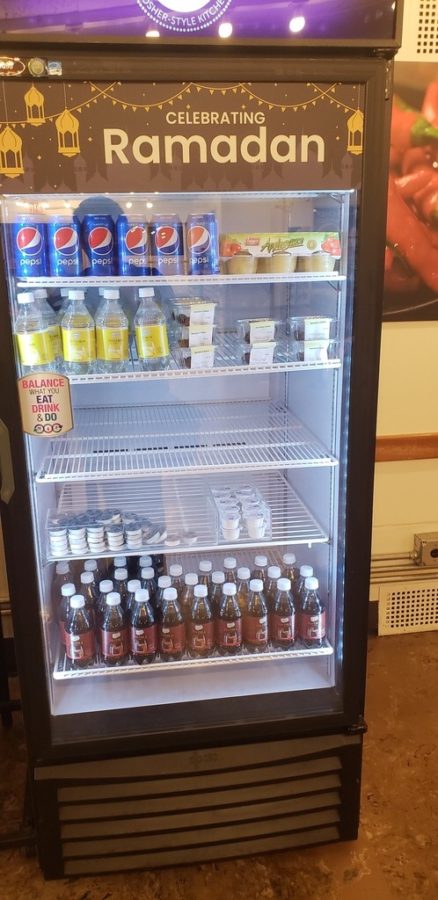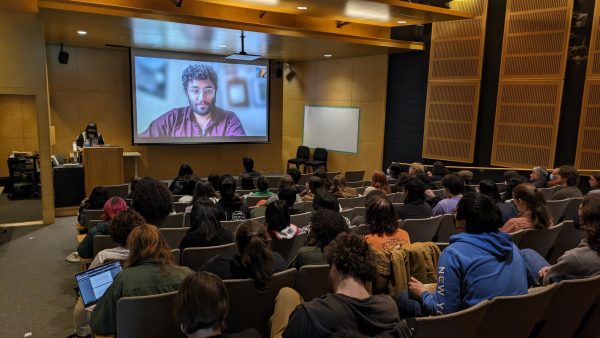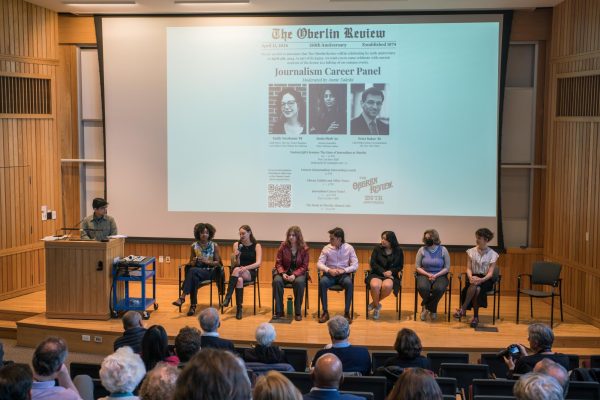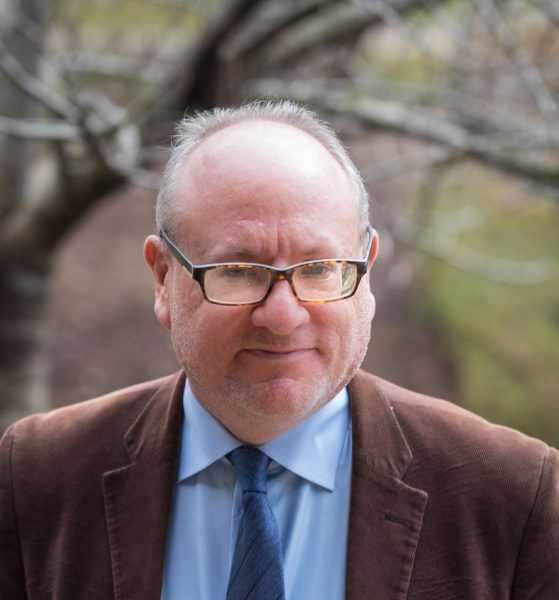Students Disappointed by Insufficient Ramadan Offerings
The Ramadan fridge in Decafé is often stocked with applesauce, Pepsi, and other soft drinks.
Despite promising to accommodate the needs of fasting students during the month of Ramadan, some students feel AVI Foodsystems’ offerings have fallen short. While AVI hoped to serve expanded food options and culturally appropriate food, students report that many of the offerings are nutritionally deficient and not halal.
During Ramadan, Muslim people are not allowed to eat or drink anything between sunrise and sunset. Since the holiday is tied to the Islamic calendar, the exact dates change year to year; this year Ramadan started April 12 and will end on May 12.
To accommodate fasting students, AVI offers warm meals at DeCafé’s hot bar for students to eat at night when they break fast and provides boxed meals they can store overnight to eat before sunrise.
“We worked diligently with one of our local vendors to expand our protein options to include halal chicken, beef, and lamb specifically for the Ramadan meals available at Wilder [Hall],” wrote Lilkeisha Smith, AVI’s director of operations at Oberlin, in an email to the Review. “We asked about vegan/vegetarian options, and expanded those as well to make sure everyone would enjoy a hot meal they didn’t have to worry about.”
However, the Ramadan meals offered at the hot bar have sometimes contained ingredients that are haram — food that is forbidden according to Islamic law.
“We break fast at 8:20 p.m. and [fast] 16 hours per day,” College fourth-year Loubna El Idrissi said. “So the hot meals would be good if we can eat them. But, for example, today I went and it was halal chicken, but it had bacon, and we can’t eat pork. … So there’s an obvious lack of research.”
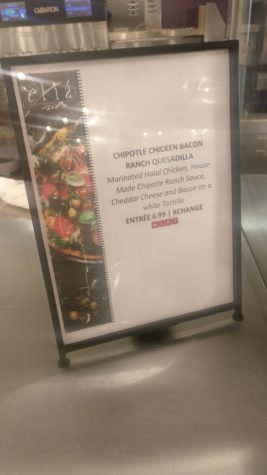
While the College has designated a special refrigerator in DeCafé for Ramadan offerings, the fridge is oftentimes only stocked with small snacks like applesauce, a single row of Pepsi cans, and soft drinks instead of substantial and nutritious meals.
“Coke and diet soda is not healthy for someone that’s fasting for 16 hours because your body needs water,” El Idrissi said.
In addition to the hot bar and refrigerator, a chef prepares fresh food every Thursday morning by 5 a.m. Some students have expressed their concerns that this service isn’t offered on all days of the week.
“It’s not like Thursdays are any different than any other day,” El Idrissi said. “Because we fast on all the other days.”
Outside of the services offered in DeCafé, students have access to dining halls like Stevenson, Clarity, Umami, and Heritage Kitchen, all of which are only open until 8 p.m. — approximately half an hour before students can break fast. For College first-year Fawad Mohammadi, the lack of options after 8 p.m. has meant finding food at DeCafé or the Rathskeller.
“Sometimes I have to go at 7:30 to get something from Stevie, then when I bring it [home] it cools,” Mohammadi said. “I can’t eat it. So the food is wasted. And then I think the only option we have is DeCafé, which, as we are trying to say, they are not providing what we need. So I have to just do a regular thing, which is getting a grilled chicken burger.”
According to Smith, AVI has made efforts to provide more traditional food options for when students break their fast.
“We discovered that during Ramadan it is custom for a lot of Muslims to break their fast with dates, so we added Medjool dates as well as a snack pack filled with our house-made hummus, pita, marinated olives, figs, and dates for those that required something with a little more substance,” Smith wrote. “We want to grow the program so our students can have an experience that may help them miss home a little less, especially since some cannot celebrate with their families at this time.”
Having this kind of food available to students is important because Iftar, the evening meal that follows the daily fast, is a moment of celebration and community. For Mohammadi, breaking the fast was a special moment in his home country of Afghanistan, which is why he was especially disappointed with the College’s offerings.
“One of the things Ramadan teaches us is to sacrifice and — I am remembering in my country — usually the people during the fasting time or breaking the fast, they would go out and give other people food or invite them to their houses for a meal,” Mohammadi said. “I wasn’t expecting this here, but I was just expecting that at least I will have a good meal. … One day before Ramadan, they said that they will have something special, but when I went there I could only see a few dates and Pepsi, and then there was something else, but I think it had bacon. I don’t know, but what they have put there, it should be halal. So I didn’t take anything from that.”
The lack of nutritious and appropriate meals can make it especially difficult for students to focus on school, especially during the final exam period.
“Every year [Ramadan has] been coinciding with finals and exams since I’ve been here, and I’m a senior,” El Idrissi said. “So like, you can’t focus on school and then make sure to catch a certain meal that will be able to later be warmed up to be eaten at 3 a.m., 5 a.m., and you still have exams.”
In lieu of sufficient meals from AVI, students observing Ramadan have been receiving support from the Muslim Students Association. The MSA has hosted dinners with food from nearby South Asian or Middle Eastern restaurants, but it is not financially possible for the group to do this every day.
“I was the treasurer, and we get money [from the Student Finance Committee] to get food once a week or once every two weeks,” El Idrissi said. “And we try to make it dependent on the students and what’s the majority of the students and what they would eat, like either South Asian or Middle Eastern or depending on what Cleveland has to offer.”
In response to concerns about AVI’s Ramadan food offerings, Smith maintains that the company will continue evolving in an effort to provide adequate nutrition for students.
“Our goal since coming to campus is and continues to be the creation of open dialogue, collaboration, and partnership,” Smith said. “We actively take the concerns of our Oberlin community and apply feedback on a daily basis. Some items we can make happen immediately or shortly after. Those that take a bit of time, we stay in communication with students and include them in the process. I believe we share the same goals of bridging culture and [creating] a safe space for seeking spiritual identity through food.”


